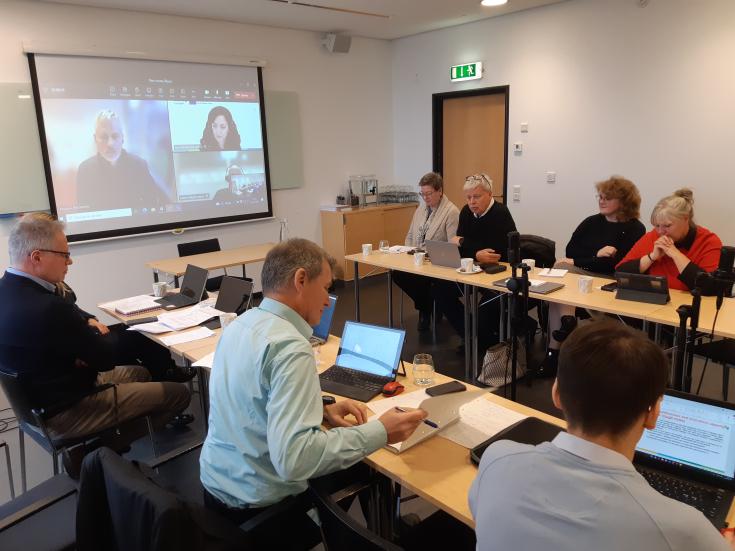Fostering innovation capacities and integrating disadvantaged groups

On 24-26 January 2023, the Policy Learning Platform organised a peer review for the benefit of the Government of Åland.
Current state of affairs
Åland is an autonomic part of Finland, with its own parliament (lagtinget 30 members) and government. Over a third of the inhabitants were born outside of Åland. Most come from Finland and Sweden, but with time more are moving in from non-Nordic countries. Åland has migrants from more than 100 different countries.
Compared to the motherland Finland and neighbouring Sweden, Åland has almost always (since 1995) been on a slightly higher level when it comes to the GDP. In recent years (already before the Covid-19 pandemic) one can see that Åland partly has lost pace looking at the GDP when comparing this economic key figure with Finland and Sweden.
There have been signs that the overall economy and business life in Åland have lost position generally from an international perspective.
Åland must retain its position quickly as a flourishing economic area, preventing it from becoming outcompeted in the long-term. There is also a need to find methods to include people outside the labour market (disabled, refugees) to find their place in the working society.
Peers from across Europe
Alongside Thorsten Kohlisch, Thematic Manager of the Policy Learning Platform, Mart Veliste and Luc Schmerber our SME competitiveness experts, six excellent peers were invited, and participated in the peer review.
For the innovation topic:
- Balázs Barta, PBN, Hungary
- Roger Sweetman, West Development Committee, Ireland
- Neil Ferguson / Natalie Walsh, University of Galway, Ireland
- Eistein Guldseth, Trondelag County Council, Norway
For the social economy topic:
- Gael Drummond, Firstport Scotland, United Kingdom
- Diana Kloubert, ESF+ Managing Authority of the German-speaking community of Belgium (East Belgium)
The experts came together to share their experience and to provide recommendations for ways of tackling the challenges related to developing innovation capacities and labour-related initiaties.. They provided the host with valuable insight, know-how and practical suggestions for solving the challenges presented above.
Recommendations
Islands have specificities which can make them interesting places as living labs and testbeds for new solutions such as e.g. remote health services, and mobility schemes. Such an approach can be leveraged by engaging in a network of similar living labs.
Entrepreneurship education is a lot about skills development and not only startup, with the aim to bing skilled people to the labour market.
Besides having a dedicated staff at the University, reaching out to the alumni as role models and mentors is key to motivating the students for taking on entrepreneurial courses.
Both broad and focused strategic approaches should be considered.
On the strategic level, there is a need to create a shared vision for the Aland islands ecosystem actors through a collaborative process and define a clear specialization for the Innovation Lab. In addition, innovation capacities of SMEs should be fostered on a broad level through collaboration with students (for example: challenge-based innovation processes) and the overall increase of digital competences across all sectors.
Developing the social economy requires a continued commitment from the relevant communities and stakeholders.
Support services need to be driven by personalized methodologies and tailored approaches (no ‘one-size-fits-all’ approach to individuals and target groups with very different strengths and weaknesses)
Internship/apprenticeship programmes are door openers for disadvantaged groups and help to build trust with employers.
It is recommended to make sure that the employment programmes come also with an incentive or stimulus for the target group. Otherwise, it could be attractive for them to remain on unemployment benefits.
Peer review report
The host’s policy challenges and all the peer suggestions can be found in the follow-up report, download it below.
Åland peer review report
Explore the recommendations in the peer review report.